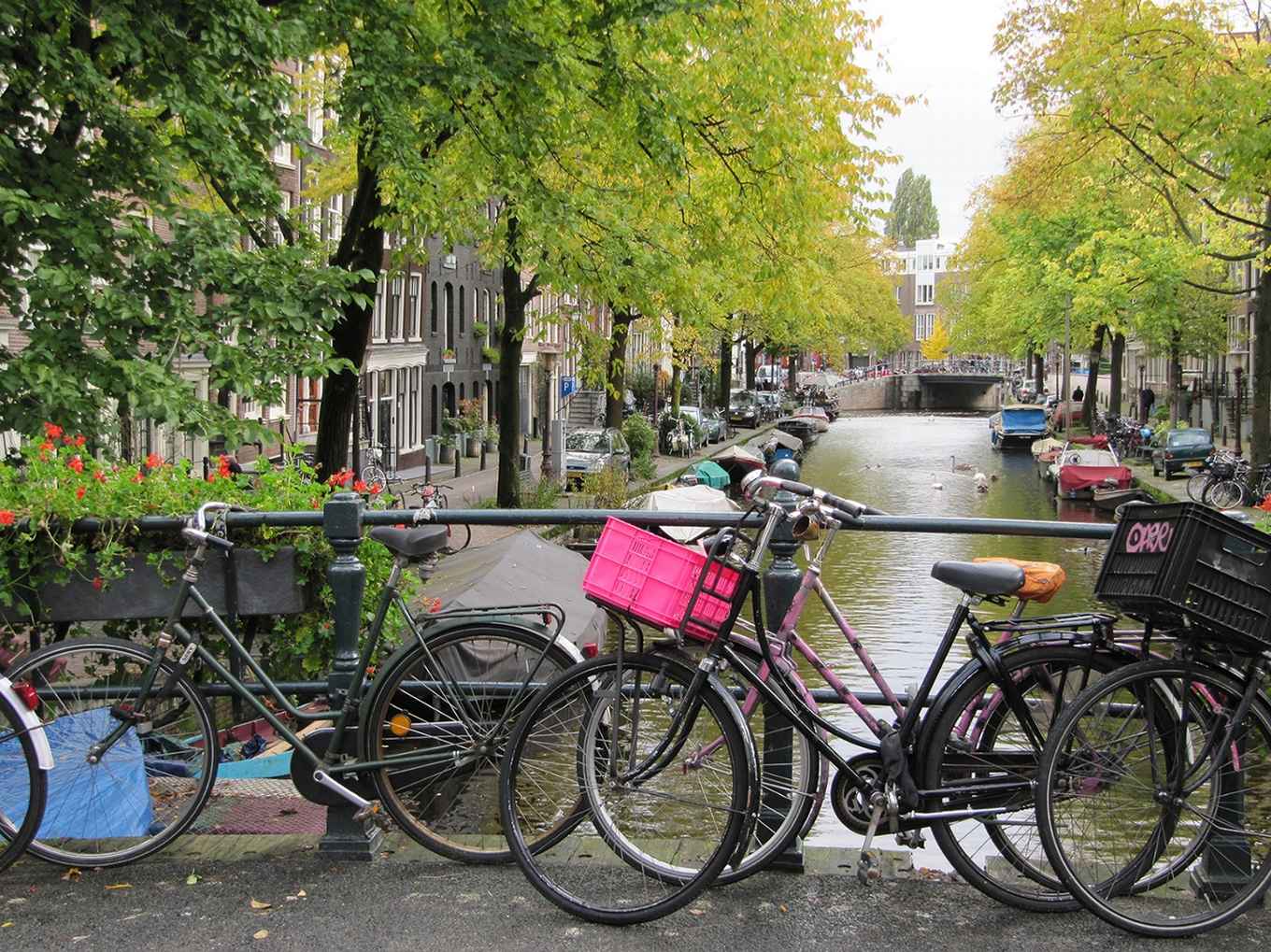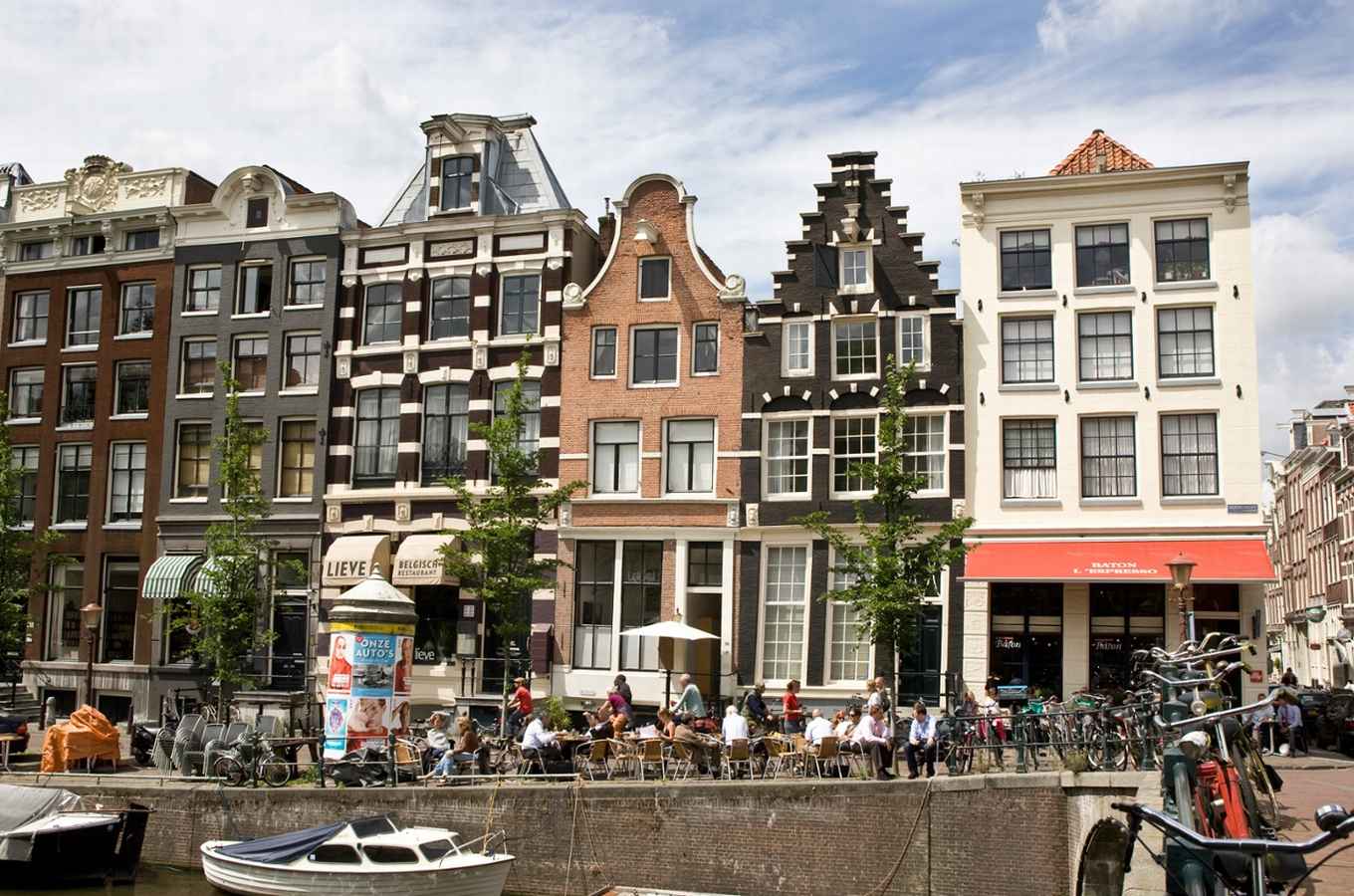Where is Amsterdam? - By visiting Prof. Erik Swyngedouw
Publication date 25-11-2013

| Je kan er boeken kopen | You can buy books there |
| Die je hier heel zelden vindt | that you rarely find here |
| Je kan er langs de grachten lopen | You can stroll along the canals |
| Je haar los in de wind | Hair loose in the wind |
| …. | …. |
| Je bent er vogelvrij | You are free as a bird there |
| Omdat er alles kan | Because everything is possible there |
| Zo dichtbij en toch zo ver is Amsterdam | So near and yet so far is Amsterdam |
(Amsterdam by Kris De Bruyne - 1975)
As Kris De Bruyne sung in his ode to Amsterdam, it is a place where you can buy books you rarely find here (in Belgium at the time), where one could set thought free. And he was absolutely right. Amsterdam in those exiting times was for me a place worthy of an odyssey. Many a times, I ventured onto the Brussels-Amsterdam train to scout out the new ideas, to browse the censored thoughts freely availably on Amsterdam’s bookshelves, to feel the winds of change, to touch the freewheeling and radical air in which Amsterdam bathed. Provo had staged its early situationist urban performances in Amsterdam, later the ‘Kabouters’ marched into the city-government, white bikes roamed the street, new lifestyles were experimented with, squatters questioned capitalist housing politics and budding neoliberal forms of urban renovation. A truly emancipatory and progressive political movement was engulfing the urban world, and Amsterdam was its cradle. Many of the thoughts and perspectives that would mature in my later academic work found their early hesitant and embryonic formulations in the cafes, bookstores and intellectual engagement with Amsterdam’s young left intellectuals and activists.
Thirty odd years later, and after many returns to my beloved Amsterdam, I feel increasingly alienated by the city, a whiff of nostalgia to a lost dream and a melancholic dread permeates my body and mind when drifting along Amsterdam’s streets and canals. Sure, it still is a great city, a global cosmopolitan urbanity that feels like a village. The quirky sites and unexpected corners are still there, but the city’s soul, its mojo seems to have decamped. Amsterdam today is boring, uninspiring. Creative and progressive intellectual thought - although still brewing in some of the remaining interstices - stifled, xenophobia rising, neoliberal austerity visibly present, new forms of uninspiring urbanity – like Amsterdam Zuidas – became stale ruins even before their completion. Urban life seems cozy (at least for most), insular, self-referential, inward-looking. The sense of exuberance, of endless possibilities, of nurturing egalitarian freedom sustained by a solidarity-enhancing mode of being-in-common seems to have been replaced by technocratic management, the bio-political dominance of accountancy spreadsheets, the tyranny of the commodity-form, and a sense of collective impotence. Nothing seems possible anymore other than, at best, the humanitarian management of the excesses of the neoliberal nightmare. It does not take great foresight to see that the tensions, conflicts and spiraling inequalities that brew beneath the cobbled surface will soon and possibly violently explode again. Rarely do I hear Amsterdam’s urban intellectuals prefigure such dystopian futures. The few who do signal the unsustainability of today’s neoliberal political-economic hegemony, like Ewald Engelen’s relentless and incisive insistence on the perverse politics of neoliberalism, are shouts in the wind as much as Paul Krugman’s continuous lament of the American variant of the elite’s pursuit of neoliberal recipes. Unfortunately, on both sides of the Atlantic, the elite’s ears remain deaf for the warnings of such eminent scholars whose alarm signals they do not wish to register.

I wonder where my Amsterdam is. I wonder whether the civic democratizing urbanity that has characterized Amsterdam’s urbanity throughout the centuries still slumbers underneath the elegant cobbled streets, in the after-rooms of the grand bourgeois houses and their neatly gentrified facades, in the immigrant neighbourhoods, or whether the spirit of Amsterdam has now forever decamped to the more exciting urbanities of Berlin, Barcelona, Istanbul, Madrid, Cairo, Sao Paulo, Sofia, Athens, or Thessaloniki, names that stand for me today for the cities that animate emancipatory desires, that ooze a spirit of possibility, where creative progressive thought and practice is actively experimented in. These are the names today of the places where citizens, city-dwellers, have become insurgent architects, where new forms of urban being-in-common are experimented with, where the powers-that-be shiver as the multitude takes to the streets and squares and stages performatively new egalitarian modes of being-in-common. The city as a political polis, where insurgent citizens demand and stage the right to urbanity, the right to co-produce the city, seems to be alive and kicking in those places, but sadly moribund in Amsterdam.
Isn’t the most eloquent manifestation of this death of the urban the fact that the most radical recent guerilla intervention in Amsterdam was the unauthorized placement of a copy of the Wall Street Bull by artist Arturo DiModica on Amsterdam’s Beursplein (Exchange Square), just a little while after the site was cleared off a small coterie of Occupy! activists, too small in numbers to even itch the powers that be or attract international attention. Is the Charging Bull’s presence – the triumphant symbol a victorious capitalo-financial order - not one of the most telltale signs of the symbolic re-appropriation of urban space by the 1%. While the square was cleared of its protesters, the unauthorized intrusion of the Bull was quickly legitimized and approved by the city administrators. Amsterdam’s elite made quite clear to all what the Beursplein and city politics stand for. Poor Amsterdam. I do long for the Amsterdam that helped me think and act as young and budding progressive intellectual, and which is undoubtedly still lurking somewhere. In the mean time, I think I shall keep going to Madrid, Istanbul, or Athens. See you there.
Erik Swyngedouw
Erik Swyngedouw is Professor of Geography at the University of Manchester. He is committed to political economic analysis of contemporary capitalism, producing several major works on economic globalisation, regional development, finance, and urbanisation. He visited the Centre for Urban Studies in November 2013 to give a talk on urban insurgency.